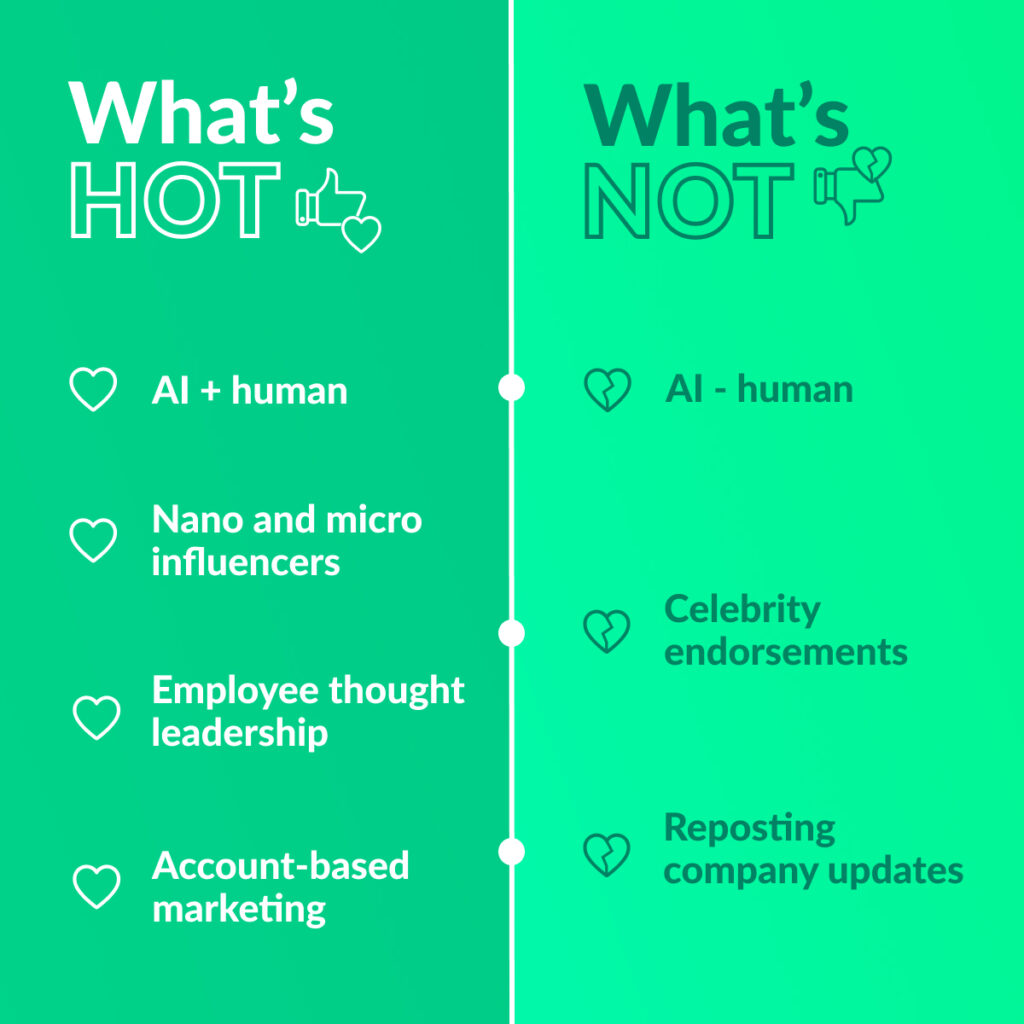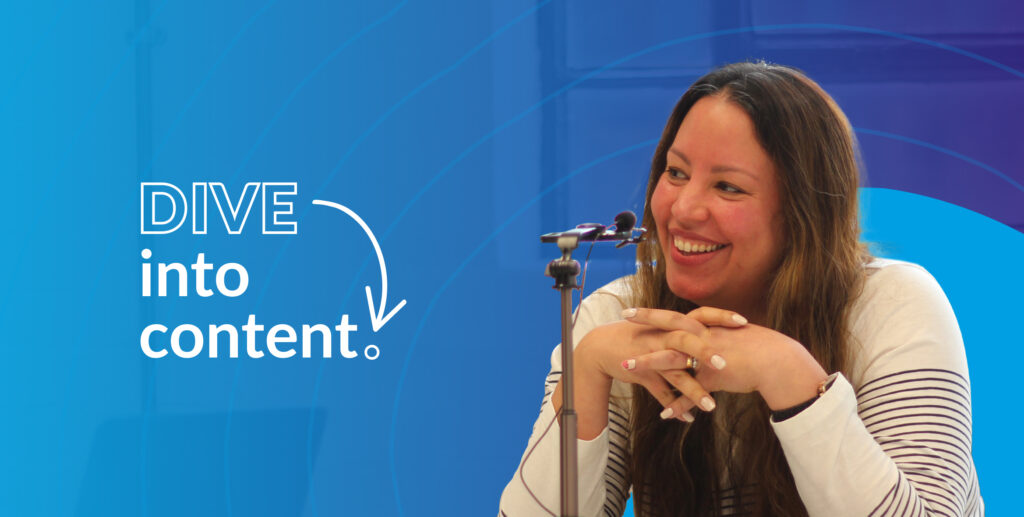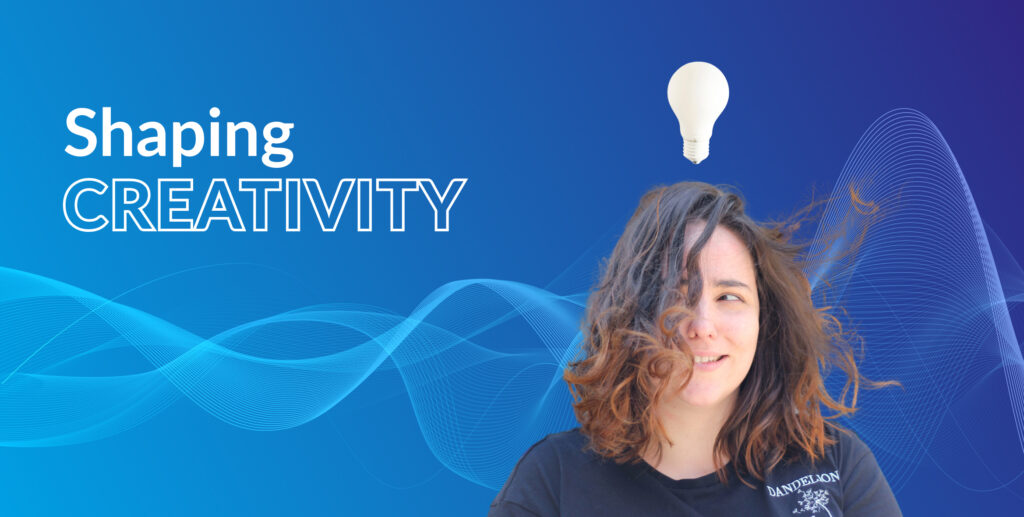Once again, we put the spotlight on a member of the Isoline team. Next up is our newest Account Director Louise Elali, who joined us over a year ago.
We had to find out what joining Isoline was like, how she copes with a busy workload, and, most importantly, what’s hot and what’s not in marketing today. Read on to find out more.
How would you describe the role of an account director?
An account director is an integrator: the job is all relationships, with the team and the client. It’s a bit of balancing act. I nurture relationships with the team, bring them together, oversee their work and keep the quality at a high standard, but also nurturing relationships with the client, and make sure we understand their business, their current needs and that we’re hitting the marks that they need us to hit.
Do you have a person that you try to model your workplace people management style after?
I don’t really have a person that I model my people management style after. I think I just developed my own way of doing things by observing other people. So my style is like a Frankenstein’s monster of bits and pieces of many different people that I have worked with over the years and that I admire.
But I think at the heart of my management style is developing a strong relationship with my team. Fostering a collaborative environment is big for me. So I like to be fairly collaborative and democratic, and I like to involve the team in decisions, as I believe this helps to develop ownership. I’m very transparent and open, I call my team all the time, and they know they can call as well. And I’m also quite nurturing, I like to push people to grow, and I like to make sure they’re part of the process from beginning to end.
Has there been a day that stands out as your favourite during your time at isoline?
Picking a favourite day during my time at Isoline is very difficult, but one particular day comes to mind. Interestingly, it was before I officially joined Isoline – I was invited to their Christmas party, where I met most of the team. It stands out because it was just such a nice atmosphere and I felt very welcome.
After I started working at Isoline, it kept being referred to as a “trial by fire”. But it really wasn’t: it was the day that made me feel sure that joining Isoline was the right decision.
What is the most difficult part of your job?
The most difficult part of my job is probably making sure that the standards are as high as they need to be in the eyes of the client, especially considering the volume of work and the different strands my team and I are currently involved in. It’s about striking the perfect balance, not just in terms of work quality, which is often on point, but also in ensuring we’re aligned with the client’s goals and objectives.
Could you share your strategies for fostering strong client relationships?
Maintaining successful client relationships for me is all about transparency, and it’s all about just being a person and treating the client as a person. It’s about recognizing that we’re on the same team, working towards a common goal. They’re not against you, you’re not against them. You have to remember that you are helping them and bringing value to that relationship.
What techniques do you use to manage a busy workload?
We’re always busy, so managing a busy workload is a big part of the job. Whether it’s employing the Pomodoro technique, setting strict deadlines, or prioritising tasks, I find a mix of methods works best.
I think the methods you choose are up to you and how you work, but also what makes the most sense for the task at hand. Sometimes I have separate lists for very specific tasks if they have too many steps to them. Other times I just have three items on my list. It really depends on what kind of task I’m doing, and I think a combination tends to be the best approach.
What learnings from your PhD do you bring to your work at Isoline?
The obvious ones are developing skills such as time management, analytical thinking, problem-solving, and project management even further, of course.
But on a different level, my PhD was about how people use social media. And at the moment, we’re developing a lot of content for social media. So there are some findings here that I can bring to work too.
When we’re thinking about strategy for social media, we can be very quick to assume we understand someone’s social media habits because we’re targeting a certain group – say students or professionals or executives.
But one of the things I’ve learned in my PhD is that, well, that’s not always true. We’re all human beings and we all have our habits. And I think paying attention to those habits is more important than putting people in pre-defined boxes and trying to assume what their behaviour is based on that. So that’s something that I brought from my PhD to work.
What’s a common misconception about content marketing you’d like to debunk?
A common misconception about content marketing is that it’s only one thing. Let me explain: I think some people think it’s only blogs. Other people hear content marketing and immediately think about social media. Neither of those is true. Or, actually, they both are true – alongside a lot of other things.
Here at Isoline, we cover the whole content marketing spectrum: yes, we write blogs and we create social media content. But we also do a myriad of other things. We produce videos – and many types at that! We write landing pages and glossary pages and optimise entire websites. And we also create pop-up sites for clients. We write whitepapers, and reports, and how-to guides – and then produce a variety of assets to help you promote them. We design infographics. We craft emails, and email funnels.
Honestly I feel like I’m only scratching the surface with this list! But also, none of this is created in isolation – so there’s a lot of strategy and campaign planning involved. My point being: content marketing encompasses so much more than just writing random blogs and posting on social media.
Let’s make a What’s Hot, What’s Not list for marketing. Which trends belong in each column?

Tough one, but I’ll put my own little spin on it because I think trends for marketing tend to have both sides.
So for instance, I think AI is a huge trend – but is it hot? It’s hot if it delivers high-quality content, which usually requires a person to oversee what’s happening, edit that content and everything. What is not hot is low-quality content. So using AI to just churn out a bunch of content, low-quality, and without a human being part of the process: that’s not hot at all.
I think endorsements are hot, but right now celebrity endorsements are not as hot as they used to be, while nano and micro-influencers and partnership marketing are going up.
Using your employees to augment your brand message is very hot, if you have a nice thought leadership program in place. If you’re just trying to convince them to just repost your corporate post, that’s not hot – it’s just not authentic.
Finally, one very hot trend right now is account-based marketing. In other words: personalised experiences, omnichannel, multichannel marketing are all very hot at the moment.
What would you say to someone thinking of hiring Isoline Communications as an agency?
I would say: What are you waiting for?
Jokes aside, I would say that with Isoline, you get more than just an agency. We proudly embed ourselves into our client teams, and we work in a true partnership. We go above and beyond to not just deliver what you ask for, but to really understand your business and, from there, examine the brief, give input and think strategically alongside you and your team. It really is a true partnership. So really, what are you waiting for?
If you want to learn more about Isoline, please email us at hello@isolinecomms.com

Like what you just read?
There’s more where that came from. Sign up to our newsletter to get the latest B2B tech news, content marketing insights, tips, tricks, memes, and more, delivered straight into your inbox every month.



